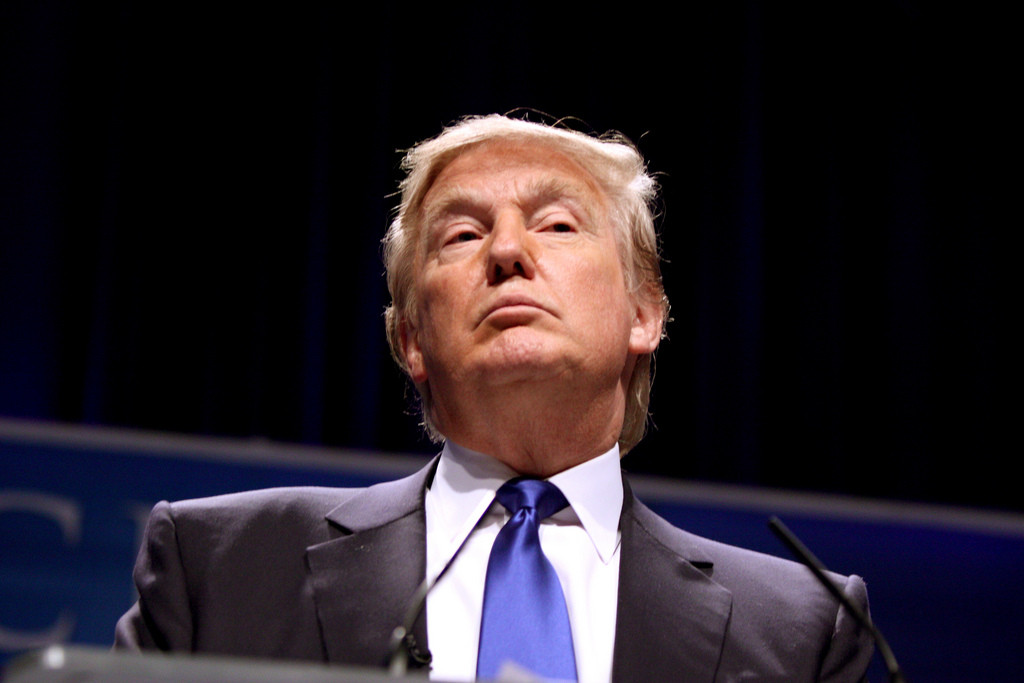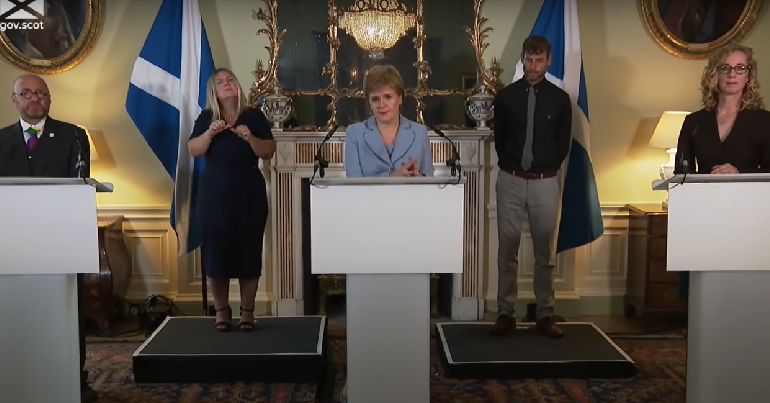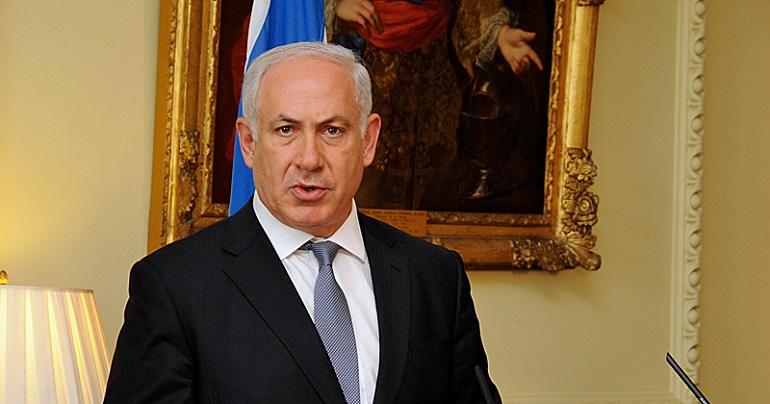Is it fair to call Donald Trump a fascist?

Donald Trump is undoubtedly many things; a racist, a misogynist, a bully, a mediocre business performer, a climate change denier, a conspiracy theorist, a bit weird about his daughter. His views are often as offensive as they are simplistic. Recently, some have taken to calling him a fascist, and I decided to think about whether that’s fair.
With most other labels, any dialectical materialist worth their salt wouldn’t care about fairness. If we’ve picked our side we should fight for it wholeheartedly, and it’s not our responsibility to meet our opponents in the middle except for tactical advantage. But fascism is a very real and tangible threat to many people, and throwing the term around loosely can deteriorate our understanding of the subject, which is not in our interest as antifascists.
And with most other labels, this would be a simple exercise of comparing Trump’s stated positions with whichever ideology we were considering, but in fact fascists throughout history have been incredibly opportunistic in their professed views (not unlike Trump), and defining fascism is as much about considering the stated positions of its adherents as it is about observing their behaviour – often they do not match. The most distinctive feature of any fascist movement is what it does when it holds political power, and as Trump does not yet hold political power (at least of a positional nature), his behaviour is difficult to compare. That said, it’s not true that you can only identify fascists once they gain power, otherwise we wouldn’t be able to see Golden Dawn for the fascists they so clearly are.
But let’s put these caveats aside. The definitions of fascism are myriad, but many of them share similar themes. The most prominent is a virulent nationalism, often of an ethnic nature. That Trump is a nationalist is unremarkable in a Republican field, but what sets him aside from other candidates is how obviously he ascribes personality characteristics by ethnic group. When he called for a ban on Muslim immigration to the US, he did so by using innuendo to paint all Muslims as potential terrorists. When he called for a wall to be built along the Mexican border, he did so by smearing Mexican immigrants as rapists and criminals. When he spoke about his business dealings in China, he drew a caricature of a brusque and impatient people who don’t talk in full sentences. Of course no politician hoping to be elected would say this, but I think it’s clear that when Trump talks about ‘us’ and ‘America’, he’s talking about white people in the US. He didn’t start a campaign to see George W. Bush’s birth certificate, after all.
Another prominent theme of fascism is a sense of national decline, and an imperative drive to reverse that decline. Roger Griffin, historian of fascism at Oxford Brookes writes: “The core mobilizing myth of fascism which conditions its ideology, propaganda, style of politics, and actions is the vision of the nation’s imminent rebirth from decadence.” Trump’s ubiquitous slogan, “Make America Great Again” fits into this theme very easily, although it must be said that unlike Germany and Italy in the interwar period, the United States is not actually in decline.
A highly charismatic central leader and cult of personality features in most definitions too. Of course most high-level politicians are quite charismatic (Jeb Bush and Ben Carson notwithstanding), but when Trump supporters are asked why they’re voting for him, a large proportion of the time they refer to his own personal characteristics and style rather than any particular policy position or experience that he has. Furthermore, Donald Trump bears a remarkable resemblance to Benito Mussolini, not only in terms of appearance but also in mannerisms and at times speaking style.
In January, three young girls dressed in stars and stripes at a Trump rally sang to the tune of an old army recruitment song “Enemies of freedom face the music. C’mon boys, take ‘em down! President Donald Trump knows how to make America great. Deal from strength or get crushed every time.” Needless to say this frightening propaganda for expansionism and American exceptionalism does nothing to assuage concerns of fascist tendencies in the Trump camp.
The similarities go on and on; hostility towards feminism, populist economic policies (like single payer healthcare), reaction against other political movements, a radical reshaping of the nation’s relationship with other global powers, extreme masculinity, contempt for the weak, action for action’s sake, hyping-up of an enemy threat, appeals to a frustrated middle class. Individually these positions aren’t remarkable for a Republican politician but taken together the idea that Trump may be a fascist is compelling.
However there is one area where Trump may differ somewhat from most definitions of fascism, which I consider fairly significant. In the interwar period fascist parties were structured as mass, revolutionary, organised, violent, and often uniformed street movements. This is also largely true of the organisations we don’t hesitate to call fascist today; the English Defence League and its various spinoffs, Pegida in Germany, Jobbik in Hungary, Golden Dawn in Greece. It is not true of xenophobic parties which people are sometimes reluctant to call fascist such as UKIP, Le Pen’s Front National, the Lega Nord, the True Finns. That doesn’t seem insignificant to me.
Does Trump have such a movement? He certainly has a lot of supporters, but although there has been some violence against protestors at his rallies, you could hardly call it revolutionary or organised. That said, Cliven Bundy, who led the armed standoff against federal officers in 2014, and whose sons led the recent armed occupation of the National Wildlife Refuge in Oregon, announced his support for Trump’s presidential bid in July, less than a month after Trump announced he was running, and when Rand Paul (whose ideology is on paper much closer to Bundy’s cause) was still in the race.
Trump might not be marching brownshirts up Pennsylvania Avenue any time soon, but with Rand Paul gone and with Sarah Palin’s endorsement, you can bet his high-profile comments about Muslims and Mexicans will have attracted the dregs of the Tea Party, the state’s rights militias, and whatever’s left of the KKK. If Trump does harbour more traditional fascist sympathies, that’s certainly not a weak starting point.




Rude and insensitive. But fair, for sure. A bit like Trump himself except the only thing that’s fair about him is his hair (-dye?).
Trump makes great play about the fact that his mother came from a certain Scottish island, the Isle of Lewis. So did my mother, and I was brought up there. And there, I hope, all similarity ends. Some of us from Lewis are profoundly embarrassed that the man can claim affinity with our beloved Hebridean isle. No, he’s not related!
Regards, David
I’m not convinced by this statement: “In the interwar period fascist parties were structured as mass, revolutionary, organised, violent, and often uniformed street movements.” Looking just at the Nazis, the NSDAP had a mere 27,000 members in 2025 – hardly a mass party at that stage, yet they obviously didn’t just become fascists when they came to power. They formed the first armed militia (SS) in 2026 but that wasn’t so difficult because there were various armed paramilitary groups in Germany already. In fact, the first social democrat government during the Weimar Republic used paramilitaries to violently suppress revolutionary socialists, i.e. the Freikorps. Although officially dissolved in 1920s, some of the former Freikorps later joined Hitler’s SS and SA. So basically the fascists in Germany were simply able to attract and build on pre-existing armed paramilitary structures. And the party, as well as the SS and SA were very hierarchically controlled. So the Nazis didn’t come to power as a violent revolutionary street movement. They just were very apt at grabbing power and they used the means available to them in their time and place (which will be different from the means available at other times and in other places).
What I always thought of as a defining feature of fascism was that gained strength and then power with the aid of populist, anti-state/anti-elite and pro-working class propaganda (hence the S in NSDAP), even though its political programme was anything but anti-capitalist but even in purely economic terms very right wing. Which btw. is where UKIP has clear parallels with pre-war fascists (though they lack a charismatic leader).
I’m not sure of the logic that says you have to have a movement before you can be fascist: individuals within a fascist movement are described as fascists, after all.
According to Political Compass he’s very Right Wing (as many candidates, including Hilary Clinton seem to be), and highly Authoritarian. That puts him squarely in the fascist camp, in my book. That there isn’t (yet) a movement propelling Mr. Trump forward is something, I guess. So it’s not that he’s not fascist; just that he’s not a fascist leader. The trouble is; it’s not too hard to image such a development, is it!?
Individuals within a fascist movement by definition have a movement…
But I think it’s a fair point – I was tempted to use the term ‘fascist in waiting’.
Perhaps the Tea Party are the fascist movement?